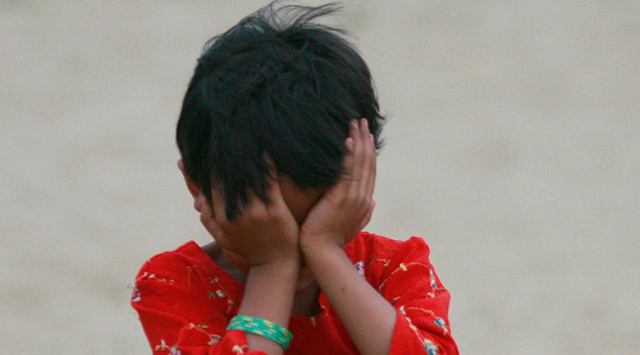Save the children
The question is – can we do anything about this or should we just wait for the inevitable

The question is – can we do anything about this or should we just wait for the inevitable.
PHOTO: FILE
The husband, who worked at a private hospital, had allegedly thrown her out of her house and even her parents were not taking her back. This happened after the woman had given birth to a daughter instead of a son. That is when the woman decided to kill her daughter and commit suicide herself. After drowning her daughter, she was caught by onlookers and later arrested by the police. Therefore, she could not commit suicide.
When the husband was told of the incident, he said that his wife suffered from mental challenges and that most members of his family were out looking for both mother and daughter when they heard the terrible news.
This sad story is not unique. Such incidents of a similar nature happen on and off in Pakistan. Most of them go unreported. In this instance, either way it is a tragic situation. If we believe the woman, it is a case of domestic abuse. If we take the husband’s version, it is a case of mental health.
A further examination has confirmed that the woman suffers from mental challenges. But the problem is that she isn’t being given medical care and instead has been locked up for murder. That is also a tragedy.
One may recall that two months back a man shot dead five of his family members, including three brothers, over a domestic dispute before committing suicide in Peshawar.
The 24-year-old man first fatally shot his father after a verbal altercation between the two. Later, when three of his brothers and an uncle reached the site of the incident, he opened fire on them, leaving all four of them dead. The suspect then killed himself. Police said he reportedly had mental health issues. The question is – can we do anything about this or should we just wait for the inevitable.
According to an article written by professor of psychiatry Dr Malik Mubbashar, reportedly 10 percent to 16 percent of Pakistan’s population — more than 14 million people — suffer from mild to moderate psychiatric illness.
This epidemic was once highlighted in the 1998 National Health Policy where it was placed as a component of comprehensive primary healthcare under the umbrella of “health for all”. However, following the ouster of the government in 1999, a new health policy was enacted in 2001.
This new policy made selective primary healthcare and donor dependence for additional resources as its prime focus and placed mental health issues at the bottom of national health priorities.
It is no wonder then that Pakistan has approximately only one psychiatrist for every 10,000 persons suffering from mental disorders, one child psychiatrist for every four million children suffering from mental health issues, and only four major psychiatric hospitals for the entire population. These shockingly low statistics contribute to the rise in the number of mentally ill patients.
We are told that 57.9% of the population in Pakistan comprises of those under 21 years of age. These youngsters are an asset to Pakistan. However, their problems are widely overlooked. There is an alarming increase of mental health problems among the young-population. And yet this is sadly the most neglected area in health-care field.
Other experts put the numbers higher. Some estimate that 20 million children or 10 per cent of the population need attention from mental health practitioners. Of this, depression accounts for six per cent cases of mental illness in Pakistan. We are told that depression is a disorder that can be reliably diagnosed and treated in primary care. But for that to happen, we would need access to qualified practitioners.
By ignoring the plight of our younger generation, many of whom are in need of varying degrees of professional help for mental challenges, we are in fact sending them to doom and gloom. Suicides in Pakistan have risen alarmingly as well, and all this suggests that steps have to be taken on an emergency basis.
We cannot assume that all is well. It is not. Let us declare 2019 a year to focus on mental health in Pakistan.
Published in The Express Tribune, February 18th, 2019.
Like Opinion & Editorial on Facebook, follow @ETOpEd on Twitter to receive all updates on all our daily pieces.















COMMENTS
Comments are moderated and generally will be posted if they are on-topic and not abusive.
For more information, please see our Comments FAQ